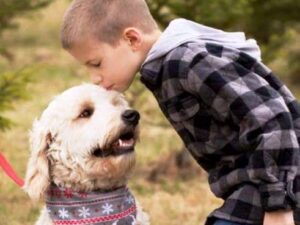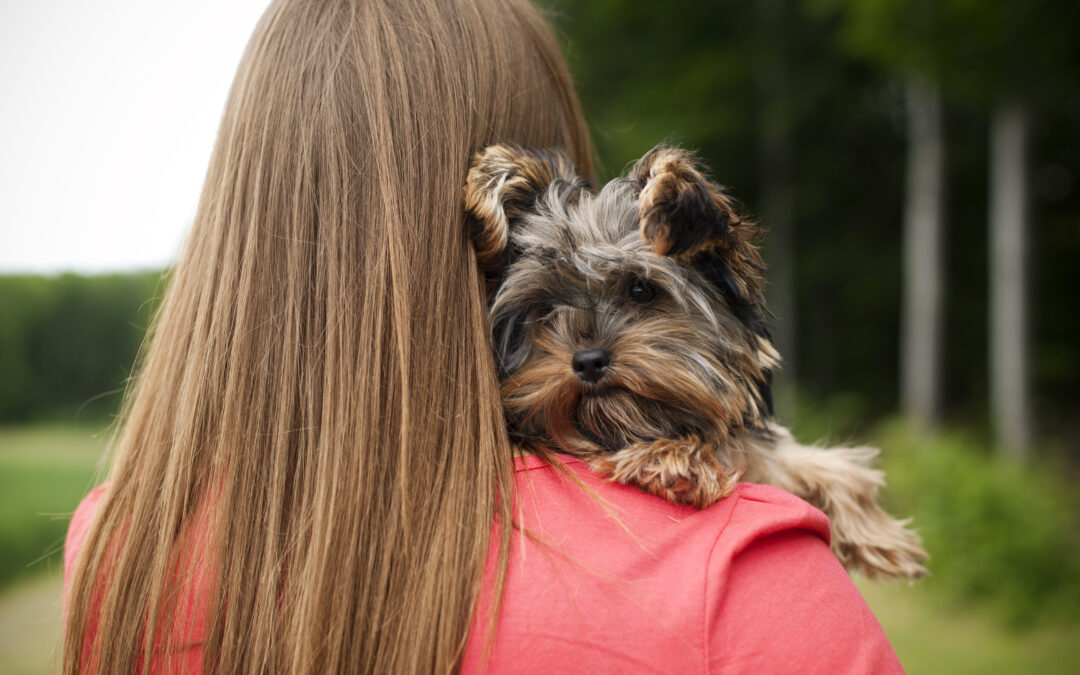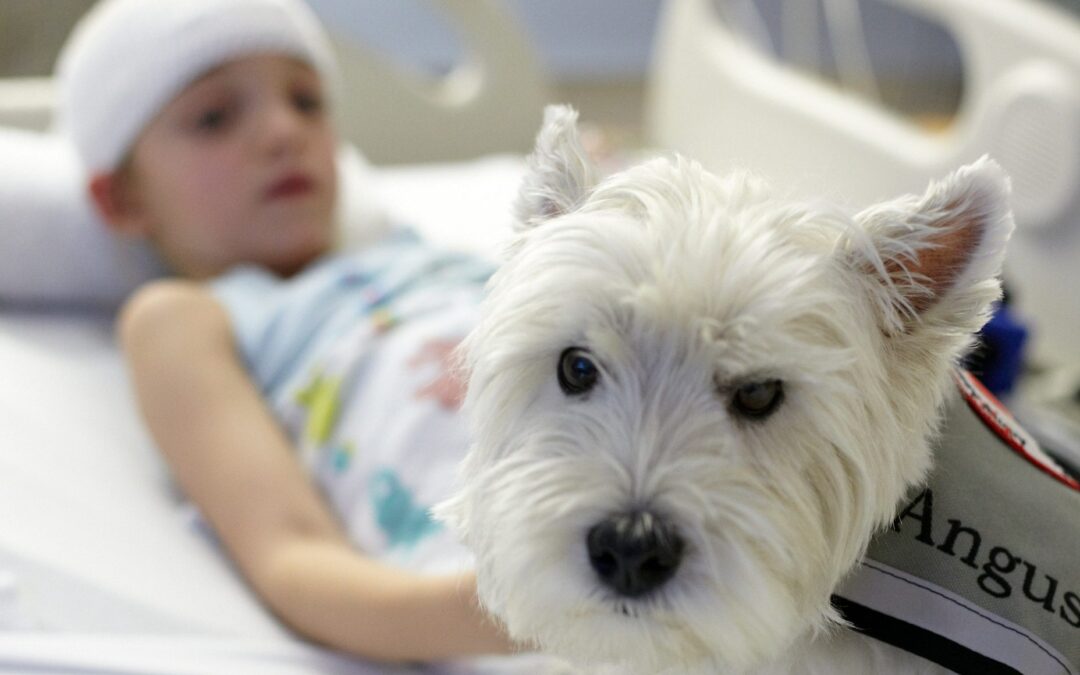What is Autism Spectrum Disorder?
Autism Spectrum Disorder (ASD) is defined, in part, by The Canadian Encyclopedia as; “a set of neurodevelopmental conditions characterized by impaired social communication and interaction” (Heifetz, 2018). This can cause a child with autism to struggle in the performance of everyday tasks and activities. However, a service dog can be helpful in a child’s efforts to participate in tasks and activities where, without the support of the service dog, may not be possible. For example, a child with autism may regularly become overwhelmed by feelings of discomfort or anxiety when faced with situations involving large crowds. As a result, the child may panic or even escape from the supervision of their guardian. The response of the guardian may be to withdraw the child from these environments and to limit their participation in certain activities.
A service dog may be useful in this situation for reasons such as providing the child with comfort and reassurance, as it reduces the likelihood of the child becoming nervous and distressed. Depending on the training received by the dog, it may respond by performing reassuring gestures for the child but sometimes, even the mere presence of the dog can provide relief. In the case of the child getting lost, the service dog can assist in search efforts by following their scent. These are only a few examples, but depending on the unique circumstances of an autistic child, a service dog can be trained to recognize their needs and assist the child in their day-to-day activities. This process promotes the child’s ability to feel confident, independent, and safe.
Is a Service Dog Right for your Child?

Although a service dog can offer a range of support for a child that struggles with autism, it is important to understand that a service dog is not suitable for every child. Thoroughly assess the needs of your child first and how the duties of a service dog would support these needs. Service dogs are usually trained for specific tasks, so it is important to identify the needs of your child and pair these with what you expect from a service dog. It should also be considered whether your child is fond of dogs and the behaviour they display around animals. If your child feels fear or discomfort around dogs, it would be counterproductive and even harmful to the child to pair them with a service dog; this can pose a risk to both the animal and the child.
With these concerns in mind, it is a good idea to consult with a service dog provider to determine whether a service dog may be suitable to the needs of your child. In many cases, a service dog can greatly support and help your child in the participation of activities and the performance of daily tasks. A child with a service dog may find themselves to be more calm and reassured in situations where they would normally feel anxious. They may also find themselves more involved in activities and able to complete tasks on their own. Introducing a service dog to your child can change the way they engage with the environment around them and has the potential to drastically improve their quality of life.










0 Comments